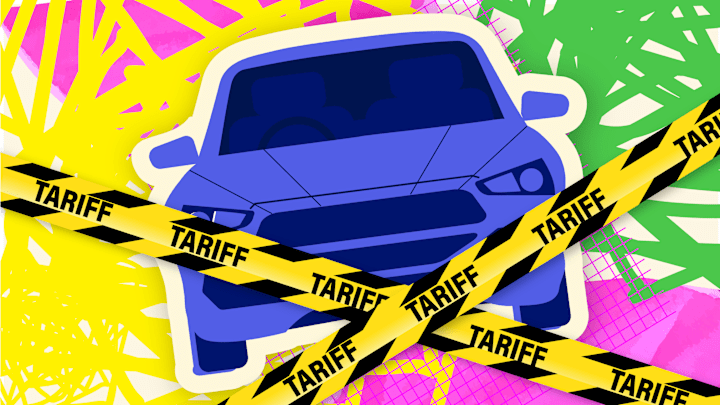Merriam-Webster defines tariff—a word that seems all but inescapable these days—as “a schedule of duties imposed by a government on imported goods.” But where did the word come from? Why is a tariff called a “tariff”?
The Origin of Tariff
According to the Oxford English Dictionary, English picked up tariff from Italian at the tail end of the 16th century—though it wasn’t used in quite the same way back then as it is now.
In modern Italian, a tariffa is a price, a fare, or a seller’s going rate. In 16th-century parlance, however, it meant “an arithmetic table” (a tabular “casting of accounts” according to one 1591 definition). That that was tariff’s first meaning in English, too. The word evolved in the 1700s to refer to a system of payments or fares—just the kind of information that might be displayed in an easy-to-digest table of numbers.

Intriguingly, you’ll find similar words scattered across many of the languages of Europe, including French (tarif), Spanish and Portuguese (tarifa), Dutch (tarief), Polish (taryfa), and Turkish (tarife). There’s a common link behind all of them: At the root is the Arabic words ta'rif, variously used to mean “a notification,” “an announcement,” “an explanation,” or “the act of making someone or something aware or known.”
Given those original senses of the word, the later financial meanings of tariff may have emerged thanks to charts or tables that would make prospective vendors (quite literally) aware of the kinds of import fees their goods might be susceptible to.
But how exactly did this old Arabic word end up being so widely used across Europe?
How Tariff (and Other Words With Arabic Roots) Got Around
Back in the medieval period, the entire Mediterranean region was crisscrossed by a network of trade routes, linking the sea ports of southern Europe to those in north Africa, the Levant, the Black and Red Seas, and beyond. As various goods and produce were traded along these routes from one port to the next, the words and phrases used around them went along for the ride. Tariff is just one of them.
In fact, elsewhere in the dictionary, you’ll find an entire vocabulary of words that emerged in medieval Europe thanks to this network of ancient trade routes. The humble jar started as the name of a kind of Arabic earthenware vessel called a jarra that was used to transport liquid commodities such as honey, wine, syrup, and water across the medieval Mediterranean.
A magazine, meanwhile, was originally an Arabic storehouse, or maḵzan, before the word came to be used in English for a printed “store” of information, and ultimately a publication. And the use of the word carat (or karat) as the name of a unit of weight for precious metals and gemstones is derived from an ancient Greek root word meaning “a carob seedpod” (the weight of which formed the basis of the unit) that led to the Arabic qīrāṭ and qirrāṭ, which then made its way into other languages.
Average, too, is sometimes said to come from an Arabic word ’awariya, meaning “spoiled or damaged merchandise.” Although countless theories have attempted to explain how this word ended up referring to a mean or proportional amount, the missing link might be a charge or system of charges “averaged” out among several traders to cover the cost of loss or damage to their goods at sea.
Even the verb garble has Arabic trading roots: It can be traced at length back to an old Arabic word for a sieve, girbal. Garbling originally referred to the act of sifting the impurities from powdered spices and other similar goods; how it ultimately came to be used to mean “speaking unintelligibly” is debatable, but at least one theory claims that the word might allude to someone catching only a handful of bits and pieces from a story or sentence, and therefore not being able to make full sense of it.
Discover More Stories About Words:
